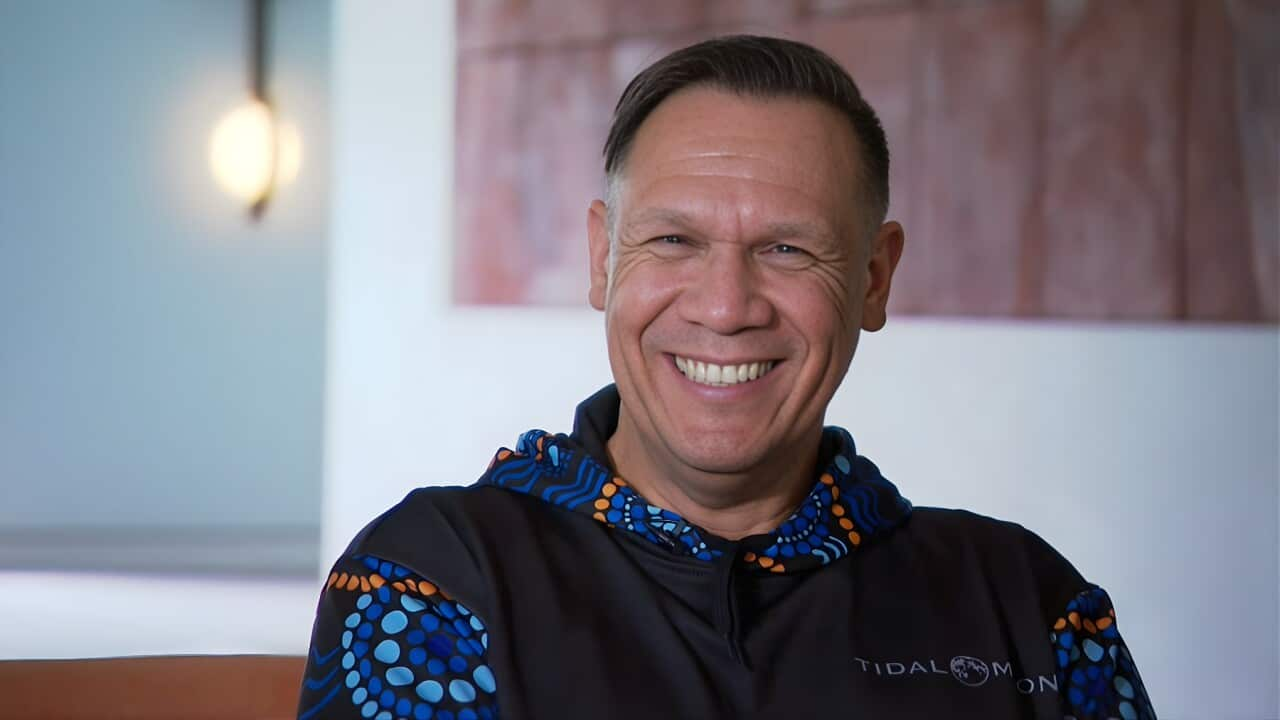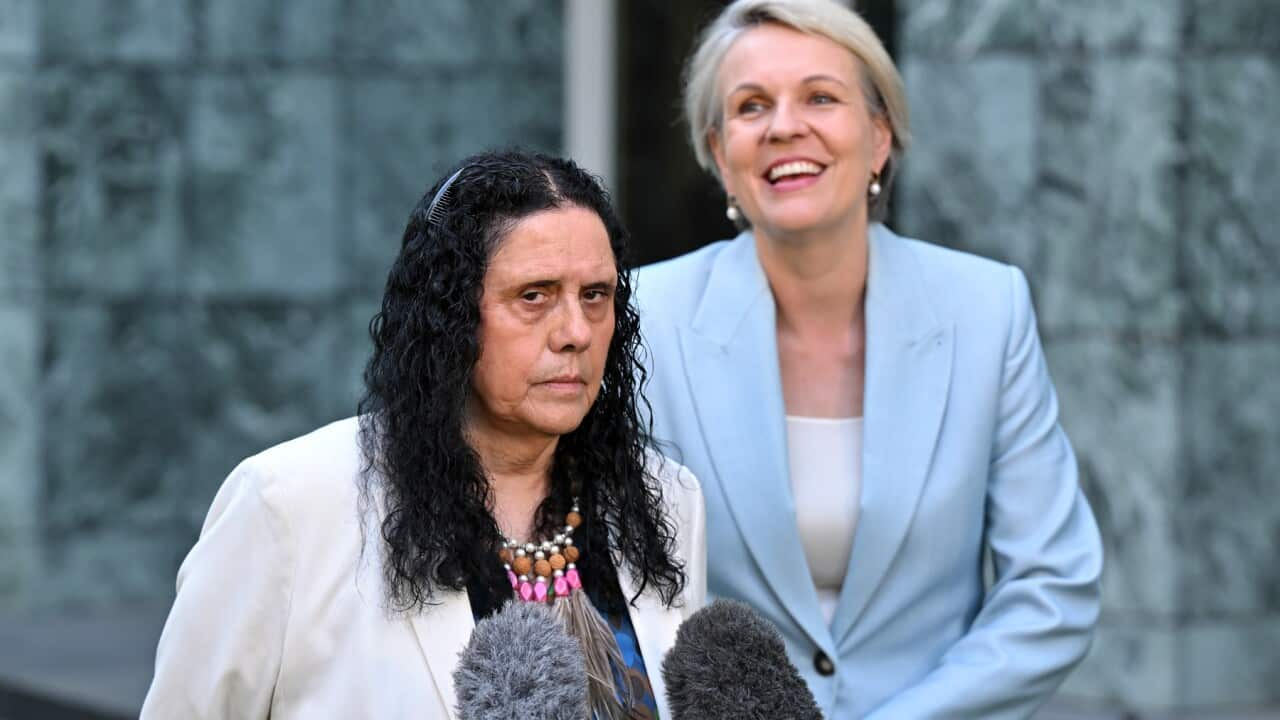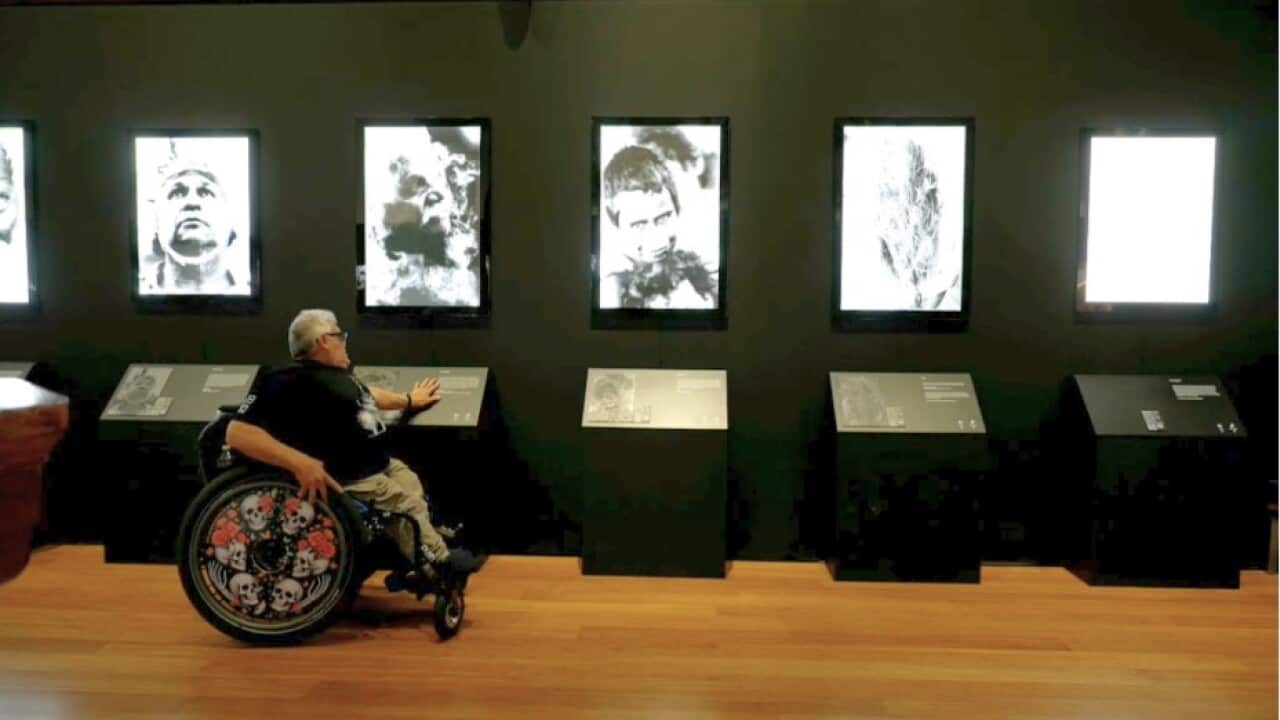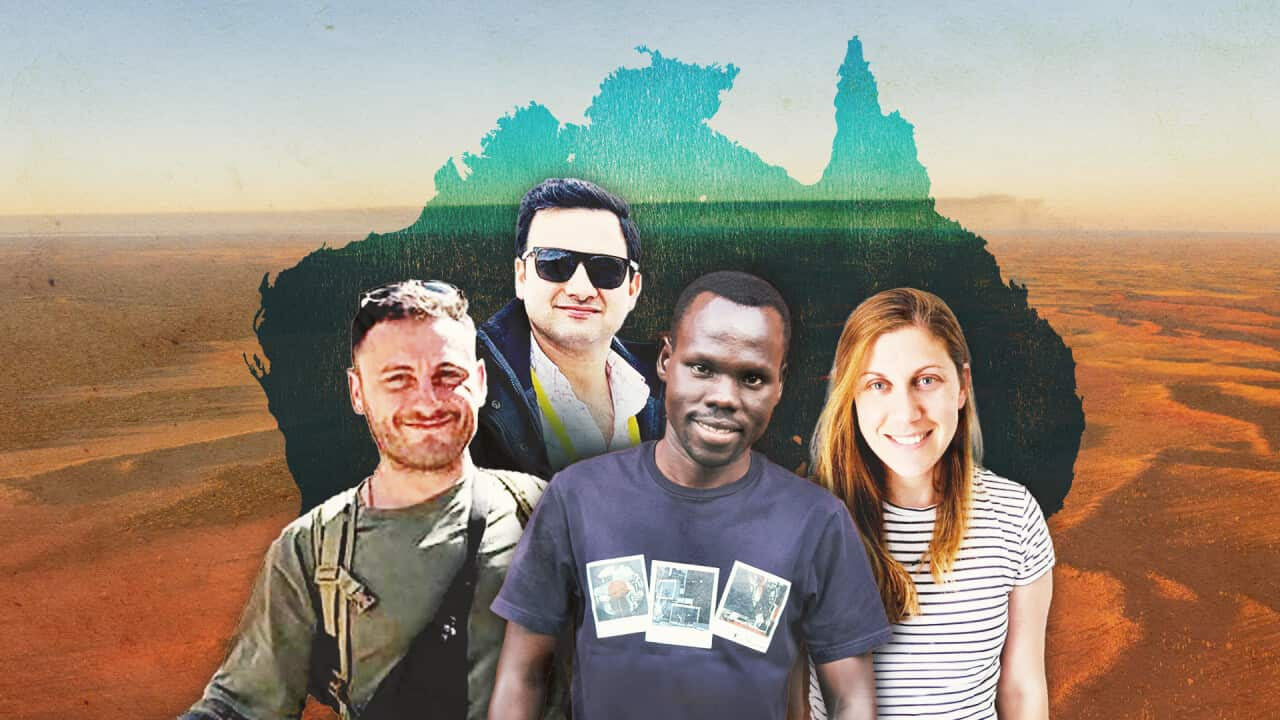Listen to Australian and world news, and follow trending topics with SBS News Podcasts.
TRANSCRIPT
Western science recognising the value of Indigenous knowledge: Professor Michael Wear is the inaugural winner of the Prime Minister's Prize for Aboriginal and Torres Strait Islander Knowledge Systems.
“It's amazing, I think, it's a humble feeling I got and I want to always make sure I do my best and I'm the first but I don't want to be the last so it's a big task ahead for me.”
Professor Wear is a Malgana Traditional Custodian of Shark Bay in Western Australia.
He's also the founder of Tidal Moon, Australia's first Indigenous-owned sea cucumber fishery and marine restoration enterprise.
"The sea cucumbers were Australia's first trade so I wanted to recreate Australia's first trade and bring it to a post-colonised world. Right now they're being bought by the Chinese, we have a Singaporean buyer who sends them up to China, but we're trying to pivot the market towards the west and develop health and beauty products."
Sea Cucumbers are this country's oldest export.
First Nations people in Arnhem Land would trade them with the Makassans.
The cucumbers are used as a food source, particularly in Asian cuisine, and in traditional medicine for a wide range of ailments.
"Well sea cucumbers have great amino acids they have good protein they're full of collagen good stuff for the gut and good stuff for your skin. We are at the early stages but we've done some reports with CSIRO, the Harry Butler Institute, the Harry Perkins institute and the future looks good, but we've got to do more research, and that's where the Western science and traditional knowledge comes together."
Under Professor Wear's leadership, Tidal Moon is partnering with scientists on a world-first project to restore sea grass.
"We wanted to bring a cultural-directed solution to the world to show how we can restore our sea meadows in Shark Bay and hopefully we're doing a good job so far because we've just been granted a thirteen-year translocation permit, and it's been hard work but I said last night when merit brings opportunity, good things can happen."
Indigenous divers are playing a leading role in environmental observation and sea grass restoration.
"Sea Grass is very important to Shark Bay, it also filters all the nutrients through, it stops currents, it stores carbon, there's ancient carbon beneath the sea meadows as well, so it plays a very vital role for both climate biodiversity and traditional knowledge of custodians."
An innovation that's bringing Indigenous knowledge systems to the forefront of marine conservation.













